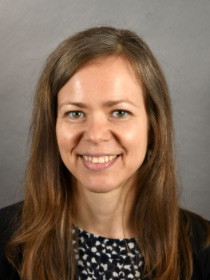
Sofya Aptekar
About Sofya
Aptekar conducts research on immigration, race and ethnicity, and urban communities. She teaches classes on sociology, race and ethnic relations, sociological research methods, and social theory. Aptekar is knowledgeable about citizenship acquisition by immigrants in the United States and beyond, as well as how the naturalization process and the meaning of citizenship have changed over time. Her most recent work examines how people get along in diverse and changing urban neighborhoods. In recent years, Aptekar has served on an advisory board of a neighborhood-based youth enrichment organization, taught adult English learners, and volunteered as an instructor at a youth correctional facility.
Contributions
How Barriers to Citizenship Status Increase Inequality in the United States
No Jargon Podcast
In the News
Publications
Contributes to the literature on migrant illegality in sociology that is primarily based on the experiences of Latinx migrants by highlighting the continuities and unique features of legal violence experienced by undocumented Chinese.
Findings show why some community gardens in food insecure communities adopt a food justice vision, while others do not, and how gentrification can amplify racial and class tensions within community gardens and between gardeners and nongardeners.
Presents quantitative analysis of a random survey of civil surgeons, identifying features of this migration industry and constructing at typology of profit seekers, immigrant advocates, and screeners. Explains that civil surgeons are in the private sector, dominated by immigrant doctors who tend to pass most applicants and charge higher fees.
Discusses how social movements are full of contradictions, and an inherent tension often emerges between reformist and radical flanks. Mentions how this becomes especially true as activists attempt to draw connections between varied aims such as opposition to globalization and support for immigrants. Considers the implication of this critical omission.
Provides a critique of work on urban public space that touts its potential as a haven from racial and class conflicts and inequalities. Argues that social structures and hierarchies embedded in the capitalist system and the state's social control over the racialized poor are not suspended even in places that appear governed by civility and tolerance, such as those under Anderson's “cosmopolitan canopy.
Illustrates through the analysis of two public spaces in a super-diverse New York neighbourhood. Concludes by raising questions about the use of super-diversity discourse in the public and policy spheres.
Draws on ethnographic research of a small public library in a diverse, mostly working class neighborhood in Queens, New York. Shows that in addition to providing an alternative to the capitalist market by distributing resources according to people's needs, the library serves as a moral underground space, where middle-class people bend rules to help struggling city residents. A
Shows that multi-vocal and fragmented contexts of collective memory help explain the uneven nature of gentrification processes, with one park serving as its cultural fulcrum while the other is left at the sidelines.
Investigates motivations for giving and the social norms that guide it. Finds that while members of other internet-based groups have been found to exhibit altruism and solidarity, altruism and solidarity in Freecycle appear to be secondary
Reports on an interview-based study in suburban Toronto and New Jersey that investigated how immigrants explain their decisions to acquire citizenship. Analyzes respondents’ understandings of naturalization in light of different theories of citizenship and different dimensions of the concept.
Argues that different ideas about the same small urban public space can lead to conflict that reinforces inequality in the neighborhood, while diversity provides opportunities for people with less power to get what they want.
Shows how the stories told to and about recent American citizens have changed between mid-20th century and today. Discusses the implications of these stories for immigration policy and immigrant incorporation.
Investigates participation in civil society among Asian Indian and Chinese immigrants in Edison, New Jersey, showing the role of race in political incorporation of Asian Indians and marginalization of Chinese immigrants.